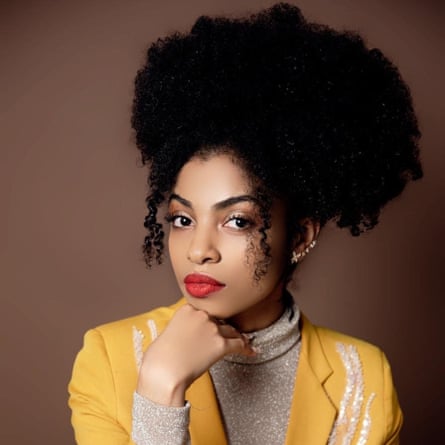Last month, a boy called Bryce from Trinidad was barred from his graduation ceremony because his hair did not meet the school’s definition of “neat and tidy”. The 17-year-old, who had a low afro, was one of more than 20 boys who were not allowed to collect their certificates on stage at Trinity College in Maraval.
“They put us on a bench far in the corner where our parents couldn’t even see us. They had to walk all the way in front of the stage to see us. It was really a bad experience for a very special day,” Bryce told a local newspaper.
The incident sparked anger on social media with comments condemning the school’s decision. One Twitter user said: “People with this colonial mentality don’t belong here.” Another wrote: “This is disgusting and indicative of the nation we live in.” The outcry prompted Trinidad and Tobago’s minister of education to recommend that cornrows be allowed in the classroom from September.
Hair discrimination has a long history, notably rooted in the European slave trade. Enslaved people had their hair forcibly cut off, a dehumanising act also aimed at severing their ties to African culture. Centuries later, the legacy of slavery continues to manifest in workplace and school settings, where afro-hair is often deemed unacceptable.

There have been some successes in challenging what are widely regarded as outdated rules. In April 2022, Anguilla became the first Caribbean island to introduce a national policy against hair discrimination. The minister for education and social development, Dee-Ann Kentish-Rogers, fought for the implementation of the new hair code, which allows braids, locs and twists in all Anguillan schools.
“Although it is not a law yet, it was set by the executive council which has the force of the executive arm of the government,” says Kentish-Rogers. The only secondary school on the island, Albena Lake Hodge Comprehensive, also updated its national code of discipline and dress. “This change will outpace most Caribbean territories that still require permission for wearing locs to school,” she adds.
“It was important for me to put forward this hair code because your rules and your laws really tell who you are as a people. We have removed the remnants of very Eurocentric thinking and are rewriting how we do life here in Anguilla. Consider it our pre-independence,” Kentish-Rogers says.
In the US, the signing of the first Crown Act in California in 2019 marked a significant milestone. The Crown Act, which stands for “Create a Respectful and Open World for Natural hair,” recognises hairstyle discrimination as a form of racial discrimination. Congresswoman Bonnie Watson Coleman, who championed the act, says it is about more than hair. “It is a civil rights issue,” she wrote in a letter to the Senate. Twenty-three states, including New York, New Jersey, Virginia and Illinois, have now passed the Crown Act or related laws.

Hair discrimination has been illegal in the UK since 2010 when the Equality Act came into force. But that doesn’t mean is doesn’t happen. After a series of cases, new guidance was published in October 2022 stating that school uniform policies that ban certain hairstyles, without the possibility for exceptions to be made on racial grounds, are likely to be unlawful.
The Halo Collective, a group of young black activists from London, developed the “halo code”, a set of guidelines for educational institutions and workplaces. The code specifically safeguards students with natural Black hair and encourages schools to show their commitment to eliminating hair-based discrimination and championing different identities.
Campaigner L’myah Sherae, who helped draft the Equality and Human Rights Commission national guidance, said: “We want Black children to be proud of their identity, not punished for it.”
But globally, legislation is the exception. Campaigners from Venezuela to South Africa, Jamaica to Kenya continue to fight negative attitudes towards Black hair.
after newsletter promotion
In Venezuela, where the term for Black hair is “pelo malo” meaning bad hair, racism is overt and hair discrimination is common. “At university, all the teachers used to say, ‘You have such a beautiful face; you can’t have hair like that. You will never find a job’,” says Paulette Abdallah, an afro hair educator based in the capital, Caracas. She sells afro hair products and encourages women and girls to love their hair through workshops and on her Instagram page.

The Venezuelan film Pelo Malo, showing a young boy’s fixation with straightening his hair, won the prize for best film at the 2013 San Sebastián film festival.
South African campaigner Zulaikha Patel initiated the “stop racism at Pretoria girls high” protest in 2016 when she was a 13-year-old schoolgirl. Patel recalls the racist school hair policy that prohibited Black girls from having dreadlocks and afros. “The institution was previously segregated [during apartheid] and built on the premise that Black girls would never enter, so when I got there, it was a very hostile environment.

“These were conditions where the institution was at a war with our identity. Before you entered, you were expected to leave your identity at the gate and assimilate to whiteness.”
Patel’s protests got significant traction on social media with a petition gaining more than 34,000 signatures, forcing an investigation by the Department of Education – and the suspension of the hair policy in 2016. It was a step in the right direction but there is much to be done to decolonise spaces and change institutional cultures through education of older generations, says Patel, now 20, who works with children in township and rural areas through her non-profit organisation, Dare to Change.
“Even in the townships, anti-Blackness is perpetuated and girls are forced to cut their hair,” she says. Her debut children’s book, My Coily Crowny Hair, published in 2021, tells the story of Lisakhanya, a young South African girl who learns to love her natural hair and be proud of her identity. “Seeing themselves represented in the book empowers [Black children’s] existence,” says Patel.
Stay connected with us on social media platform for instant update click here to join our Twitter, & Facebook
We are now on Telegram. Click here to join our channel (@TechiUpdate) and stay updated with the latest Technology headlines.
For all the latest Education News Click Here
